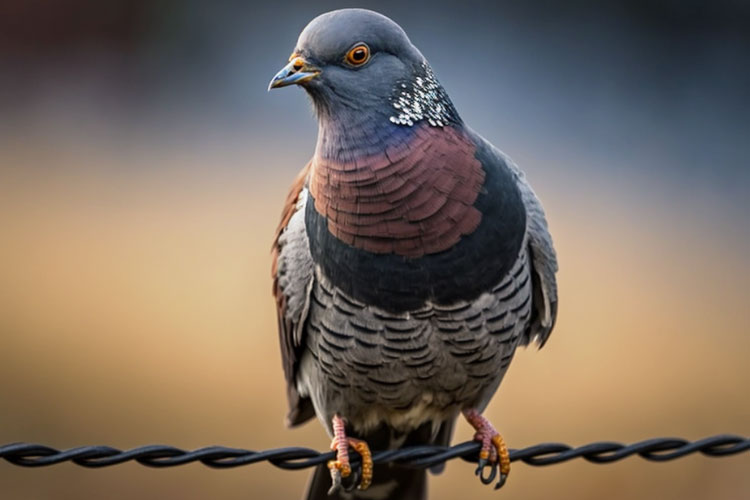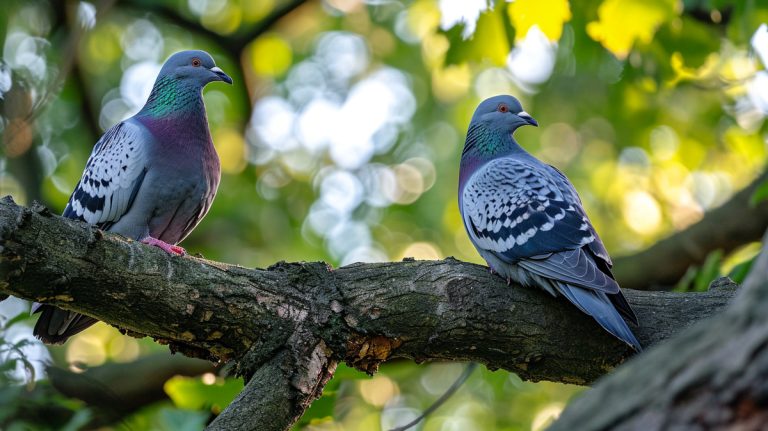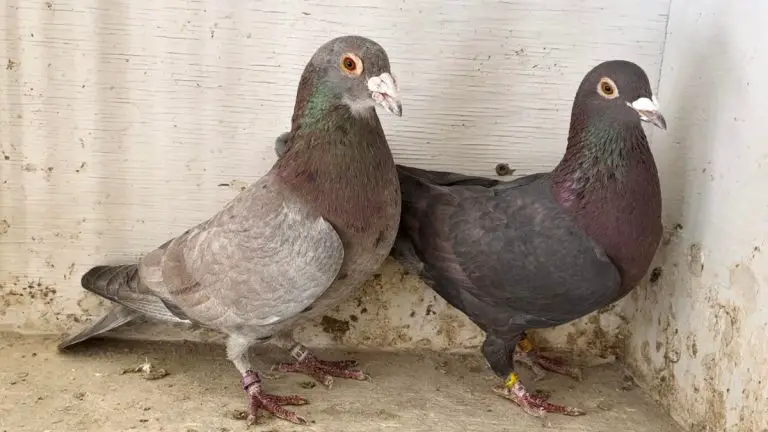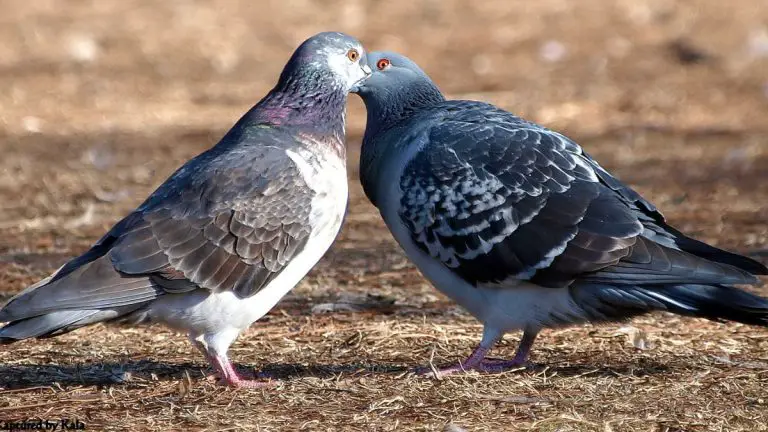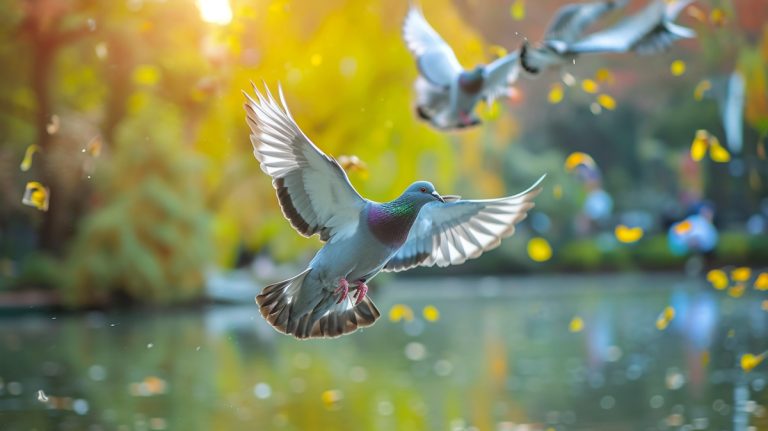Why Do Pigeons Coo In the Morning, At Night, Constantly?
Though pigeon cooing isn’t as intense as parrots, you might get annoyed with the cooing noise all the time. Pigeons coo in a lower voice, but they do it regardless of the time of the day.
So, why do pigeons coo in the morning, at night, constantly? Pigeons coo for several reasons, such as calling partners for mating, communicating with other pigeons in the vicinity, and informing others about foods and nesting places. Happiness or distress can also be the reasons behind pigeons cooing.
Let’s go through a comprehensive discussion about why pigeons coo constantly.
Why Do Pigeons Coo?
Alongside the reasons mentioned above, pigeons can coo for other reasons. Here is a detailed overview of why pigeons coo frequently.
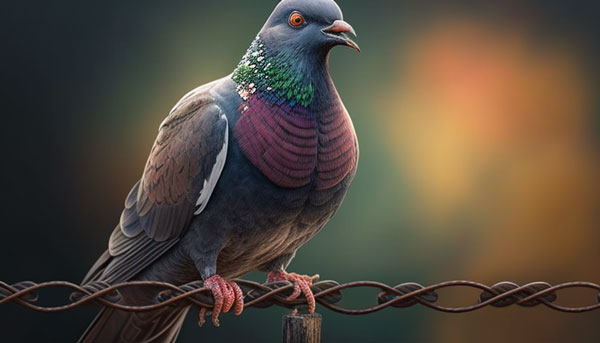
Calling Partners for Mating
Pigeons breed almost all year round, and the average length of their breeding season can be about 183 days. The most common season of breeding is spring and summer. During these seasons, pigeons tend to go out for food and mating.
Male pigeons make melodic cooing noises to attract female partners. If a suitable partner is in the vicinity, they tend to roam around the partner and show their chests. Besides, they will continue cooing to draw the attention of the female pigeon.
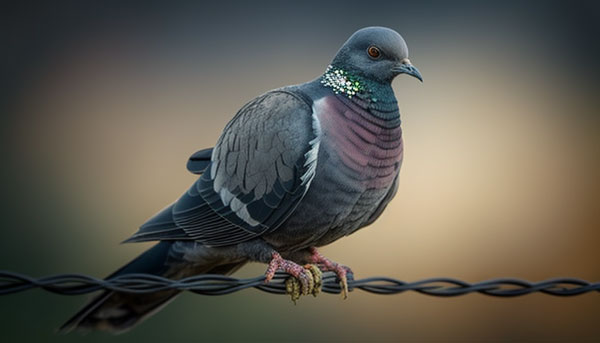
The cooing can continue after they find a partner. But it will be slightly different with a lower pitch. This cooing is a sign of affection to the partner. Pigeons can also coo after mating.
Declaring Territories
When a flock of pigeons is nesting in an area, they will coo to declare their claim over the territory. If pigeons from other flocks enter the territory, they will coo to make invaders disappear. They also inform other pigeons in the flock that there are invaders within the territory.
The cooing can sometimes be accompanied by a grunting noise caused by anger. Though pigeons don’t get angry too much, invading their nesting area or food sources can make them coo constantly.
Communicating and Socializing with Other Pigeons
Social interactivity is common within pigeon flocks. Researches show that the behavior of pigeons can change depending on what signal they send and receive. When a flock of pigeons is socializing, they make different types of coos to transmit signals.
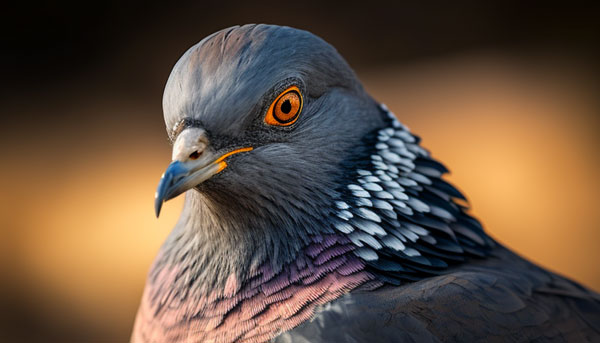
This interaction can either be courtship or rivalry. But they tend to coo as long as other pigeons are present in the vicinity. It is more like their way of passing information about food sources or nesting places.
Signaling About Predators
If a predator approaches a pigeon’s nest, it can send distress calls through cooing. And they will continue doing that until they receive any help. The pitch of this cooing is a bit higher than regular cooing noises.
Or if they see a predator approaching the nest of other pigeons in the flock, they make coos to alert their companions about the predator. This can frequently happen at night, which is the perfect time for predators to munch on a pigeon.
Why Do Pigeons Coo In the Morning?
After a night of sleep, pigeons tend to go out in the morning in search of food. Once a food source is available, they might express happiness or satisfaction through their coos. It is also a signal to other birds in the flock that a food source is available nearby.
Squabs or baby pigeons make a different type of cooing noise, which is known as squeaking. This is more like the noise of a whistle. Squeaking means baby pigeons are hungry or want to draw their parents’ attention.
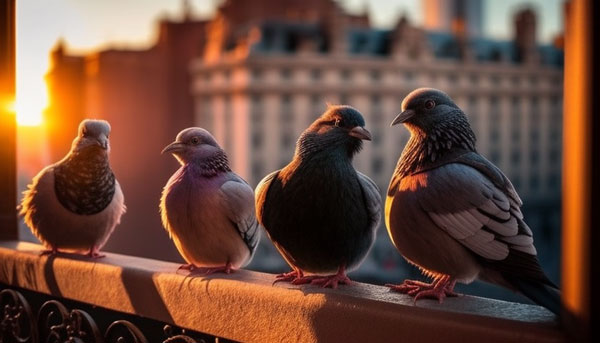
If baby pigeons are scared, lost, or injured, they will make the same noise to call for help. They usually rest in their nests and don’t fly. But if they fall from the nest for some reason, they might call other pigeons to help them get back.
The fresh morning breeze can also be a reason behind the happiness; hence pigeons are cooing. When they go out and find other birds in the vicinity, they start expressing satisfaction or happiness through their coos.
Why Do Pigeons Coo At Night?
Pigeons cooing at night is annoying for most people, especially when it is time to relax. Though pigeons usually sleep about ten hours at night, they might switch between wakefulness, non-REM sleep, and REM sleep. It means they won’t be in a deep sleep all night long.
When they get awake at night, they might coo to communicate with their partners or other birds in the flock. They can also make prolonged coos if they sense any danger.
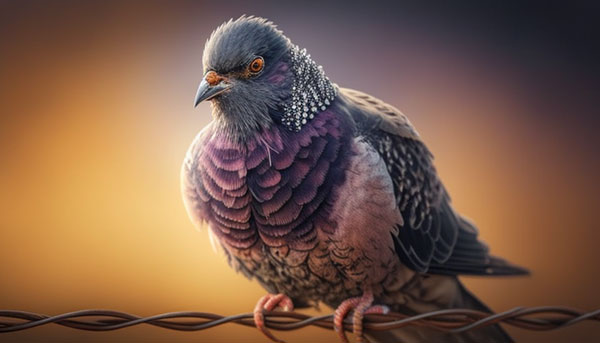
As predators typically attack pigeons while resting at night, it is common for pigeons to coo at night. Another big reason is the change in their sleep cycle. This is common for pigeons living in urban areas. These areas have a lot of lights that might influence the sense of day and night.
So, pigeons might not sleep when you expect them to sleep. And while they are awake, they will continue to coo.
Why Do Pigeons Coo Constantly?
Though cooing is common for wild pigeons, constant cooing indicates something unusual. If it is a mating call or regular communication, the cooing will be of a medium pitch with some breaks.
But if they coo as a distress call or alert, the pitch will be higher than normal. And the length of the coo will be longer than usual.
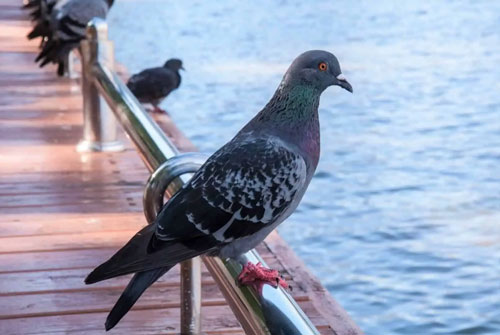
This is also common for pet pigeons. If your pet pigeon coos constantly for a long time, you must check whether it is feeling scared, uncomfortable, hungry, or ill.
If you’re looking for more information on pigeon control and care, our articles on pigeon shooting and pigeon droppings can provide helpful insights. Our article on can I shoot pigeons on my roof explores the legal and ethical issues surrounding this controversial topic. If you’ve ever wondered why pigeon poop is white, our article on why is pigeon poop white explains the science behind this phenomenon and the potential risks associated with pigeon droppings. With our articles, you can learn more about how to control pigeon populations and maintain a safe and healthy environment for yourself and othersFAQs
Here are the answers to some commonly asked questions. Check them out.
A: Female pigeons coo a lot less than male pigeons. So, you might not hear them cooing in the morning. But they might start cooing at night to protect the babies living in the nest.
A: As we stated above, baby pigeons make a noise called squeaking. Their voice becomes loud at the age of three to six months. So, they will start cooing during this age. Some babies need more time than others to start cooing.
A: When the whole flock of pigeons is socializing, their coos can sound like screaming. This usually happens in the morning when they all wake up and start hunting for food. When they get back to the nesting area at dusk, the screaming can happen again.
Conclusion
Despite the lovely and peaceful characteristics of pigeons, they make annoying noises almost all day long. And the coo noise is more audible in the morning or at night. So, why do pigeons constantly coo in the morning, at night?
Cooing is the calling sign of pigeons for mating. They attract their partners by making coos and flapping their feathers. It is also common to make cooing noise after mating or eating a meal. Pigeons also coo to declare their territories and call for help.
